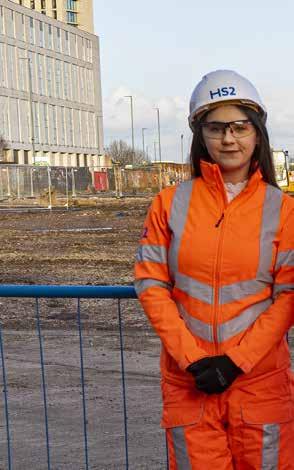54
TRAINING
RAILSTAFF MAY/JUNE 2020
INVESTING IN ESSENTIAL SKILLS
LOCKDOWN AND SOCIAL DISTANCING HAVE FORCED COMPANIES TO WORK IN NEW AND DIFFERENT WAYS, FAVOURING THOSE WITH SKILLED, VERSATILE AND ADAPTABLE WORKFORCES.
T
he current Coronavirus epidemic has challenged all businesses across the UK in a way that none can have expected or predicted. Some have carried on trading, while others have almost completely shut down. How well they come out of this situation, how strong or weakened they will be, depends largely on management skill and how their workforces have adapted to life during and after Covid. Rail is an interesting mix. Trains are still running and infrastructure work is still taking place, so front-line staff have continued to work, albeit with social distancing and other restrictions in place. Those managing these operations are largely working from home, connected to both their own staff and suppliers/clients via telephone, email, Zoom, Microsoft Teams, Slack and various other digital methods most had never even heard of before the lockdown started. In addition, a number of people are furloughed - barred from the office and their emails until called back to work. This not only affects them, it also affects their colleagues who are still working, as they are not there to contribute ideas and knowledge. This is when having a skilled workforce really counts. It’s those human skills, and the ability to be able to stay positive, focused and recognise and support others, that really makes the difference. Employers that have taken steps to make their staff as skilled as possible, able to react quickly to challenges and changing conditions, are now reaping the benefits of that forward planning.
A HIGH-SPEED EXAMPLE Despite the lockdown, major construction works are still taking place at over 80 per cent of HS2’s work sites between Birmingham and London, while office-based staff are supported in working from home as the company adapts the way it engages with external partners and the community to hold meetings and events virtually instead of in person. HS2 launched its Skills, Employment and Education Strategy in 2018. It offers a ‘once in a generation’ opportunity to upskill the nation and ensure that people who live local to the route, and those from disadvantaged and under-represented groups, are given the opportunity to play their part in delivering this huge feat in British engineering. The ambitions were high, but they are fast turning to reality. The ‘Skills Builder’ model helped HS2 to embed an essential skills approach across its education and future talent programmes, believing that there are clear benefits to widening its use across the organisation. RAILSTAFF.CO.UK | @RAIL_STAFF | FACEBOOK.COM/RAILSTAFF




